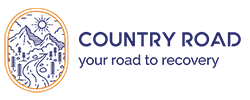Going to rehab isn’t a pre-planned aspect of any military career. When you find yourself at the point where addiction treatment is necessary, though, how can you find help? Of course, the VA is a good first step, but if VA resources aren’t easily accessible to you, you might feel like giving up before you’ve even started. Don’t. Rehab for veterans could change your life, and it’s more accessible than you think. Here are five things you need to know when looking for help.
Rehab for Veterans Tip 1: Understand Addiction in Veterans
Admitting that you have a problem is the first step on the road to recovery, but shame and stigma keep many people from being honest about their drug or alcohol abuse. There’s no need to let shame trap you in your addiction. Drug and alcohol addiction is a chronic brain disease. Just like you wouldn’t blame someone for having cancer, you shouldn’t blame yourself for your addiction.
In fact, veterans are more susceptible to addiction than regular citizens. Due to the nature of service, vets experience traumatic events at rates far greater than the general population. That buried trauma and mental health difficulties can serve as the kindling for the raging fire of addiction.
In short, your drug or alcohol abuse isn’t really something that you’ve done. It’s something that happened to you, and you deserve help in healing from it.
Rehab for Veterans Tip 2: Understand Addiction Treatment for Veterans
Addiction treatment for veterans helps identify and heal the underlying issues that often lead to self-medication and addiction. There are many different levels of treatment depending on your own needs and goals.
In residential addiction treatment, you’ll receive 24/7 treatment focused on helping you heal from the inside out so you can stay clean and sober for the long term. Masters-level clinicians will develop a customized treatment plan for you including one-on-one counseling, group therapy, trauma care, and other innovative therapies for healing. You’ll live at our peaceful Oklahoma campus and focus 100% on getting well.
From there, many vets step down to outpatient treatment. In IOP (intensive outpatient programs) or PHP (partial hospitalization programs), clients continue the same kinds of therapy that they received in residential addiction treatment — often with the same team. The main difference is that they live at home outside of treatment hours. This helps people start the process of reacclimating to regular life with a support system in place.
Rehab for Veterans Tip 4: Aftercare Planning
An important part of any treatment is aftercare planning. Throughout your time with us, our team will work with you to plan for your next steps. That may involve arranging sober living, organizing outpatient addiction treatment, researching 12 Step meetings, or pursuing vocational training. Whatever you need, we’ll work with you to ensure that you have the tools for successful living when you leave treatment.
Rehab for Veterans Tip 4: Paying for Addiction Treatment for Veterans
Depending on which type of addiction treatment you pursue, your insurance may cover all or part of your treatment. The VA covers substance abuse treatment for veterans, and Country Road can work with the VA to help cover your stay. We also are in network with or accept most major insurances. Call our admissions team to verify your benefits and find out how to make treatment work with your budget.
Rehab for Veterans Tip 5: Start the Road to Addiction Recovery
The best tip for anyone considering a life free from addiction is to start today. Even just one click or one call could be all it takes for you to begin the road to recovery and the path to an entirely new life. Call our caring admissions team and they’ll walk that road with you.


